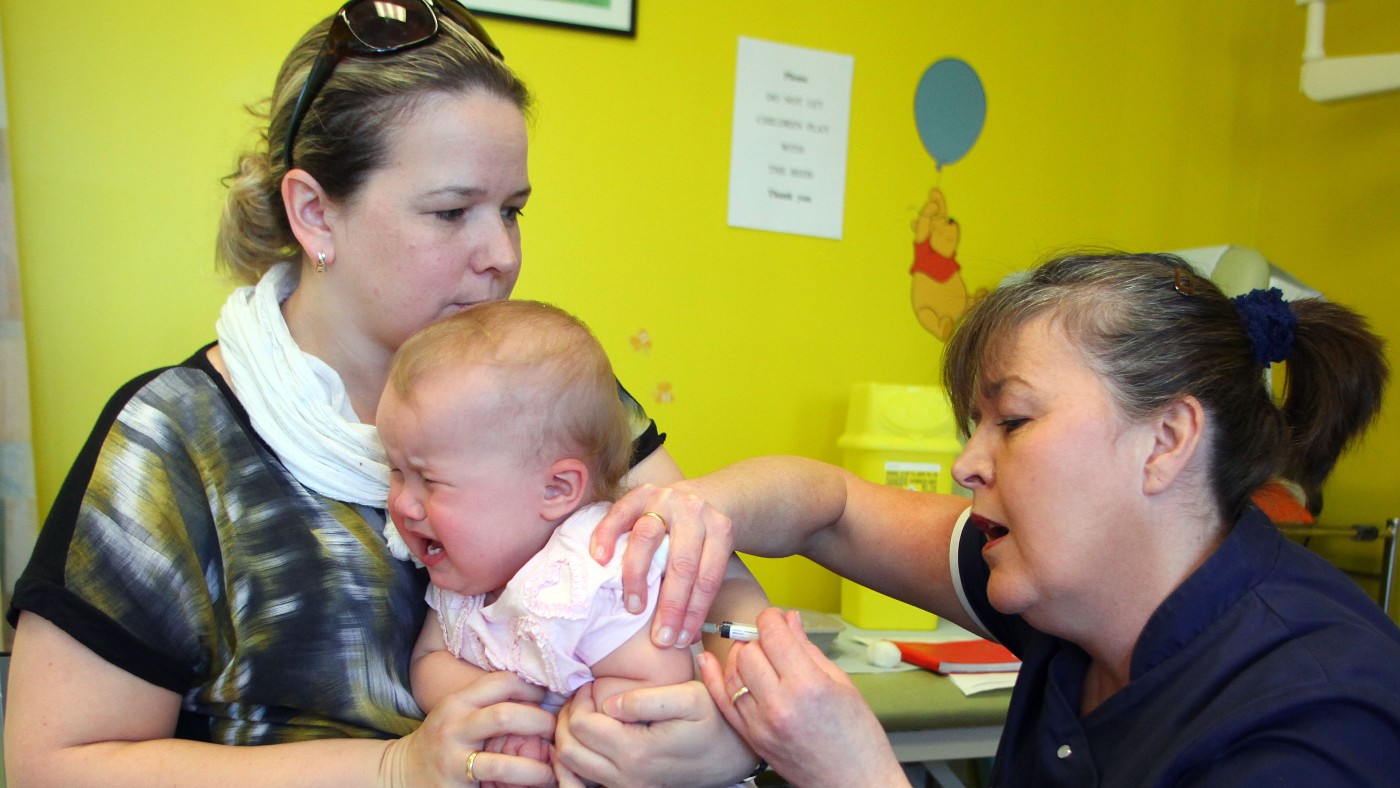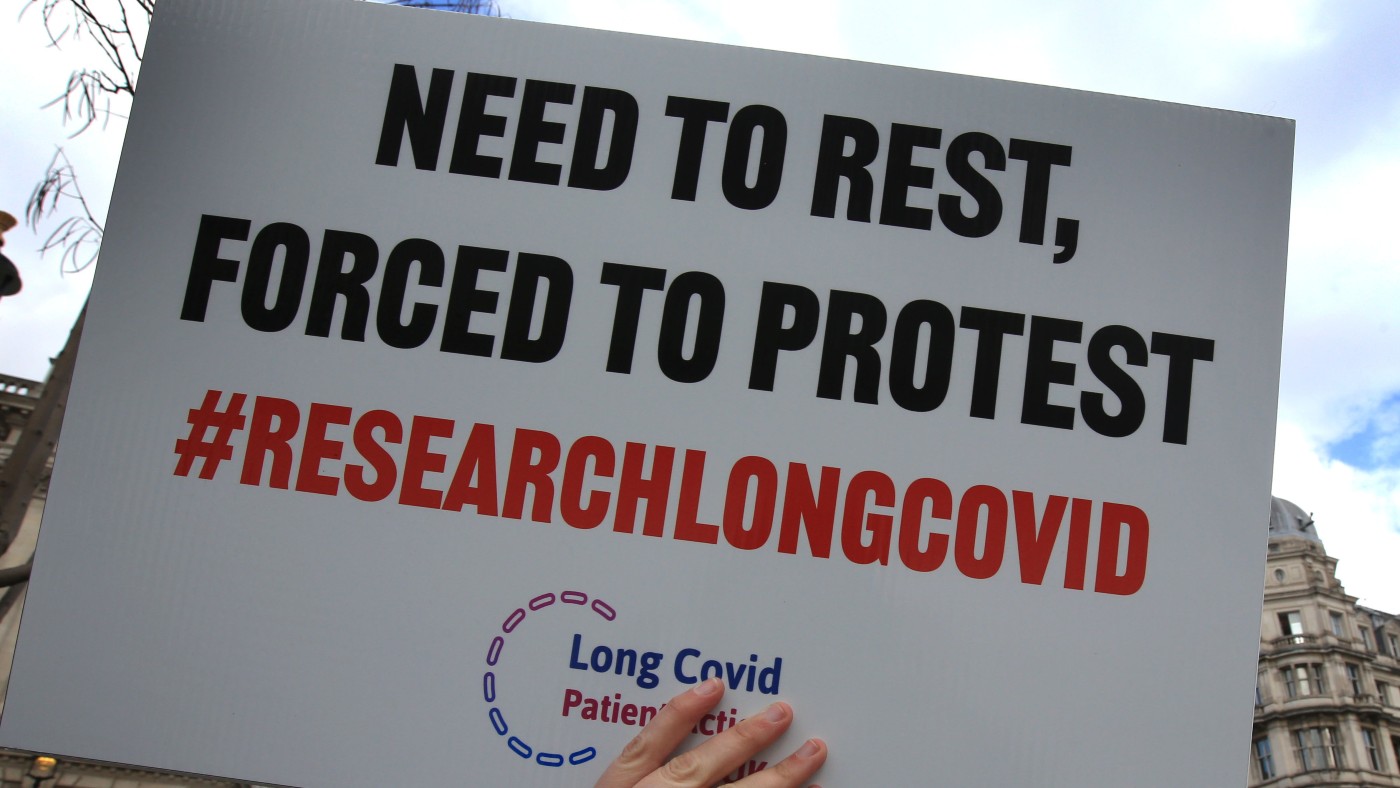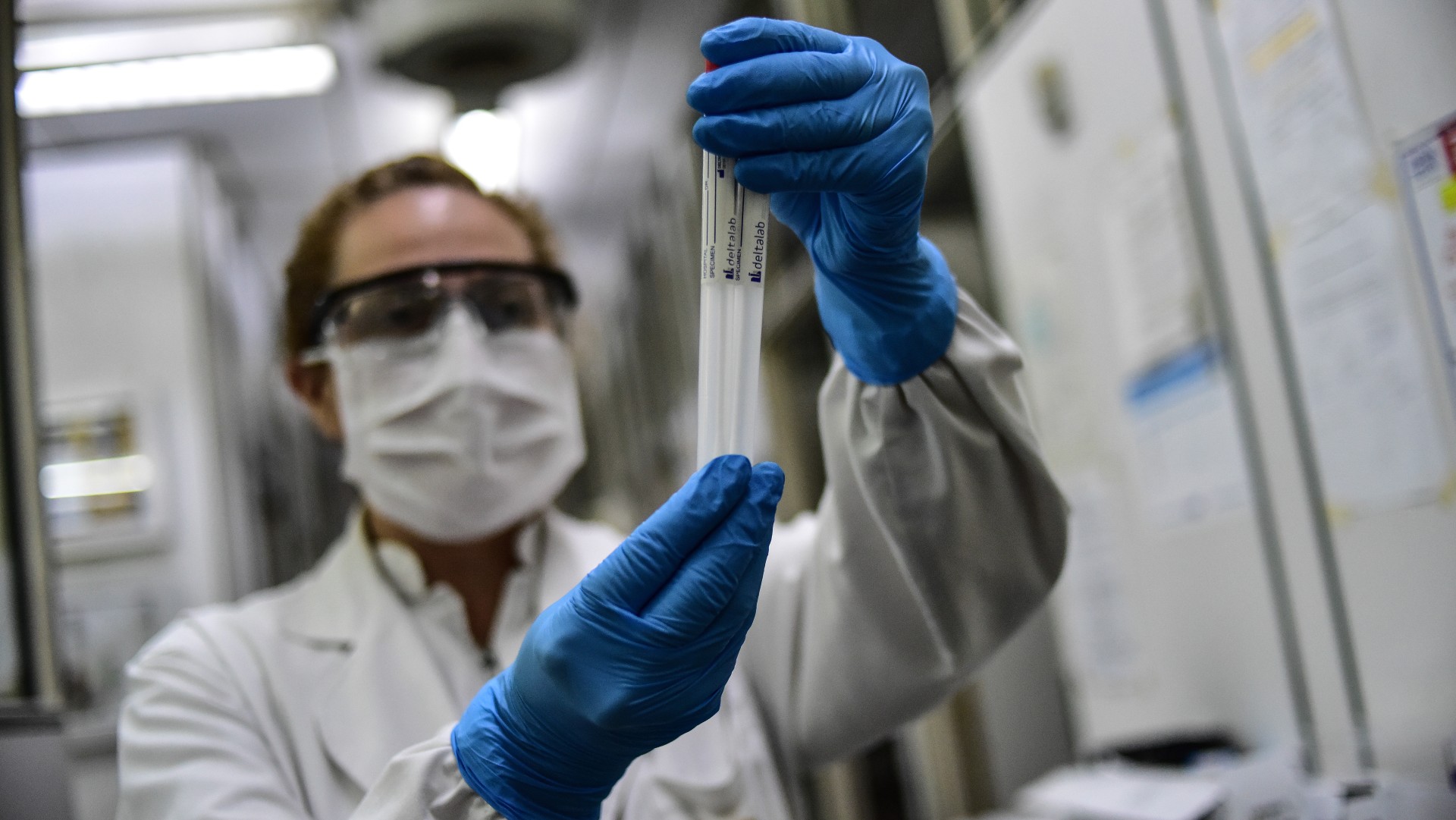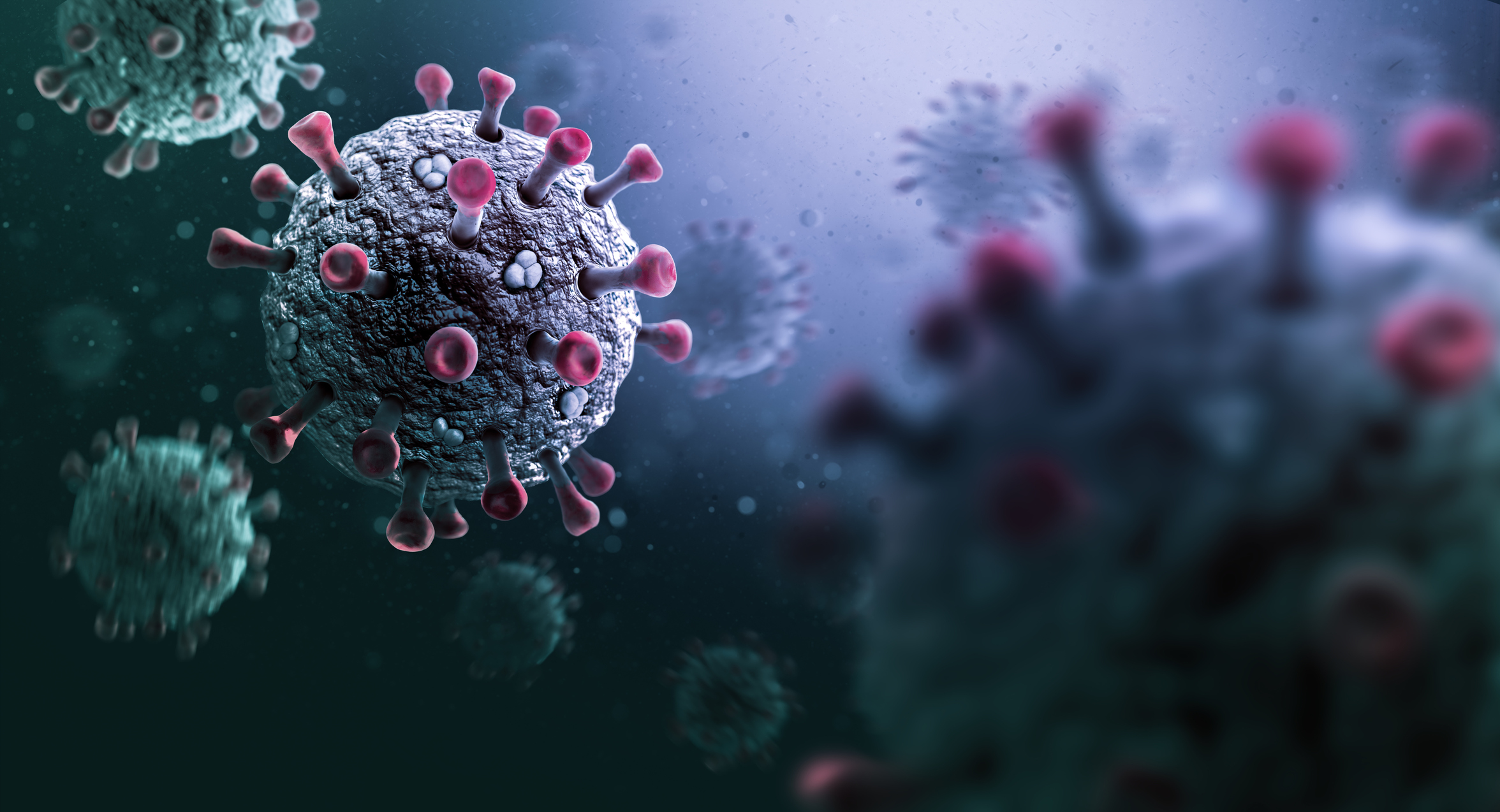The surprising link between hay fever and your gut bacteria
New research suggests probiotics could help sufferers beat the worst of the seasonal symptoms

A free daily email with the biggest news stories of the day – and the best features from TheWeek.com
You are now subscribed
Your newsletter sign-up was successful
Samuel J. White, senior lecturer in genetic immunology and Philippe B. Wilson, professor of one health at Nottingham Trent University, explain how new research has revealed a link between hay fever and the microbiome, the collection of microorganisms that live in and on our bodies.
For many people, spring has brought with it the dreaded symptoms of hay fever, such as itchy eyes, sneezing and a stuffy nose. Hay fever is common, affecting up to 42% of people. It occurs when the immune system overreacts to allergens including pollen.
Research suggests there could be a link between hay fever and the microbiome, the collection of microorganisms that live in and on our bodies. Specifically, the composition of a person’s gut and nasal microbiomes may play a role in the development of hay fever symptoms.
The Week
Escape your echo chamber. Get the facts behind the news, plus analysis from multiple perspectives.

Sign up for The Week's Free Newsletters
From our morning news briefing to a weekly Good News Newsletter, get the best of The Week delivered directly to your inbox.
From our morning news briefing to a weekly Good News Newsletter, get the best of The Week delivered directly to your inbox.
By exploring this connection, we can identify potential alternative treatments that may help reduce the effects of hay fever on people’s daily lives.
Hay fever and the microbiome
Studies have shown that people with hay fever often have a less diverse gut microbiome compared to those without the condition. Reduced diversity of gut bacteria can lead to an imbalance in the microbiome, and result in higher levels of inflammation (the body’s immune response to irritants, such as an allergens).
So the fact that reduced diversity of gut bacteria can lead to an increased risk of hay fever makes sense since the gut microbiome plays a key role in regulating the immune system, and we know the immune system influences allergies.
The gut microbiome is thought to affect immune system function in several ways, including through the production of short-chain fatty acids. These are produced by gut bacteria during the fermentation of dietary fibre (a part of normal digestion).
A free daily email with the biggest news stories of the day – and the best features from TheWeek.com
Short-chain fatty acids are known to have anti-inflammatory properties. Research has shown that lower levels of two bacterial strains which produce short-chain fatty acids – Bifidobacterium and Lactobacillus – are associated with an increased risk of hay fever.
In addition to the gut microbiome, hay fever also seems to be linked to the nasal microbiome, the community of microorganisms that inhabit the nasal passages.
The nasal microbiome plays an important role in regulating the immune system and protecting against harmful pathogens that enter our bodies through the nose. Imbalance and reduced diversity of the nasal microbiome can lead to an increased risk of respiratory infections and exacerbation of hay fever symptoms.
Studies have shown that people with hay fever often have a different composition of their nasal microbiome compared to those without the condition, with more of certain bacteria such as Staphylococcus aureus. This imbalance in the nasal microbiome can lead to increased inflammation and a higher risk of certain hay fever symptoms.
The potential role of probiotics and prebiotics
Probiotics are live microorganisms which enhance the composition of “good” bacteria in the body. Prebiotics, meanwhile, are fibres that stimulate beneficial bacteria in the gut. Essentially, good bacteria feed on prebiotics. Both are important for maintaining a healthy gut microbiome, which plays a crucial role in our overall health.
Several strains of probiotic bacteria have been studied in connection to hay fever.
One strain of interest is Lactobacillus acidophilus, which has been found to reduce hay fever symptoms such as congestion, itching and sneezing. Another is Lactobacillus rhamnosus GG, which has shown potential in preventing hay fever development in infants.
Other strains such as Bifidobacterium lactis, Bifidobacterium bifidum and Lactobacillus casei have also shown some promise in reducing hay fever symptoms. But further research is needed.
How does this work?
Probiotics appear to modulate the immune response and in particular, decrease the production of inflammatory cytokines. These are signalling molecules produced by cells of the immune system that promote inflammation.
For example, Lactobacillus acidophilus can decrease the expression of inflammatory cytokines associated with allergic inflammation in the mucous membranes in the nasal cavity.
Similarly, Lactobacillus rhamnosus GG has been shown to reduce airway hyperresponsiveness (where the airways narrow excessively in response to stimuli), decrease inflammatory cells in the lungs, and reduce inflammatory cytokines.
Prebiotics, such as fructo-oligosaccharides, have also been studied for their potential in hay fever prevention. They’ve been found to increase beneficial gut bacteria such as Bifidobacterium and Lactobacillus. One study showed that fructo-oligosaccharides supplementation in infants decreased their risk of developing hay fever.
Incorporating probiotics and prebiotics
If you suffer from hay fever, you may want to consider incorporating probiotics and prebiotics into your routine.
Probiotic supplements are widely available in various forms, including capsules, tablets, powders and drinks. It’s important to choose a supplement that contains the specific strains of probiotic bacteria that have been studied in relation to hay fever. These include Lactobacillus acidophilus, Lactobacillus rhamnosus GG, Bifidobacterium lactis, Bifidobacterium bifidum and Lactobacillus casei.
You can also incorporate probiotic-rich foods into your diet. These include fermented foods such as yogurt, kefir, sauerkraut, kimchi and kombucha.
As for prebiotics, fructo-oligosaccharides are commonly found in certain foods such as bananas, onions, garlic, asparagus, artichokes and whole grains. Supplements are also available in various forms, including powders and capsules.
Sometimes, taking probiotics and prebiotics may have side effects, including digestive discomfort such as gas, bloating and diarrhoea. To minimise these risks, it’s recommended you start with a low dose and gradually increase this over time. It’s also worth consulting a healthcare provider before taking these supplements, especially if you have a medical condition or are on medications.
Samuel J. White, Senior Lecturer in Genetic Immunology, Nottingham Trent University and Philippe B. Wilson, Professor of One Health, Nottingham Trent University
This article is republished from The Conversation under a Creative Commons license. Read the original article.
-
 The Week Unwrapped: Do the Freemasons have too much sway in the police force?
The Week Unwrapped: Do the Freemasons have too much sway in the police force?Podcast Plus, what does the growing popularity of prediction markets mean for the future? And why are UK film and TV workers struggling?
-
 Properties of the week: pretty thatched cottages
Properties of the week: pretty thatched cottagesThe Week Recommends Featuring homes in West Sussex, Dorset and Suffolk
-
 The week’s best photos
The week’s best photosIn Pictures An explosive meal, a carnival of joy, and more
-
 Why measles is threatening children right across the UK
Why measles is threatening children right across the UKfeature The UK lost its measles-free status in 2019, indicating that the measles virus was circulating and there was inadequate vaccination to prevent its spread
-
 Betelgeuse: why star is behaving oddly and what would happen if it exploded
Betelgeuse: why star is behaving oddly and what would happen if it explodedfeature Dimming and then brightening has led to speculation about whether its demise in the form of an explosion is imminent
-
 Thousands of people in UK out of work due to long Covid
Thousands of people in UK out of work due to long Covidfeature New data suggests 0.5% of total economic inactivity in working-age population of non-students due to long Covid
-
 Sanofi: the new protein-based Covid vaccine to be used in the UK
Sanofi: the new protein-based Covid vaccine to be used in the UKfeature Protein-based vaccines have been safely used for years against hep B, flu and shingles
-
 Why the future of Covid is now harder to predict
Why the future of Covid is now harder to predictfeature The question of how the pandemic will be felt in 2023 is in some ways impossible to answer
-
 Tomato flu: symptoms, transmission and what might be causing it
Tomato flu: symptoms, transmission and what might be causing itfeature Doctors think the unusual tomato-shaped rash might have a link to the Covid virus
-
 How to cool down in a heat wave – what the science says
How to cool down in a heat wave – what the science saysfeature As UK temperatures soar, here are some research-backed tips for staying safe
-
 Why are there so many new Omicron sub-variants?
Why are there so many new Omicron sub-variants?feature Latest sub-variants of Covid-19 mutation are fuelling fresh waves of infections worldwide